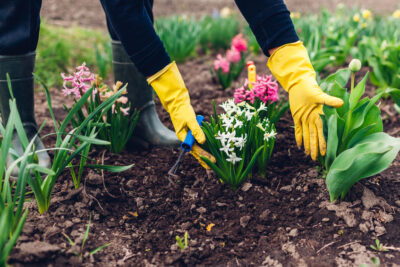
Spring is an exciting time for gardeners, offering the perfect opportunity to refresh your outdoor space and prepare for a year of vibrant growth. However, a few common planting mistakes can hinder your efforts and keep your garden from reaching its full potential. By recognizing these pitfalls and implementing smart strategies, you can give your plants the best possible start. Here’s how to avoid the most frequent spring planting mistakes.
Planting Before the Last Frost
It’s tempting to get your garden started as soon as the first warm day arrives. However, planting too early in the season can leave your plants vulnerable to unexpected frost, which can damage or kill tender seedlings.
Research your area’s average last frost date and use it as a guideline for outdoor planting. If you’re eager to get started, begin with hardy plants, or use protective covers like frost blankets to shield delicate seedlings.
Overcrowding Your Plants
In the excitement of planting, it’s easy to place plants too close together. Overcrowding can lead to competition for sunlight, water, and nutrients, and it creates a breeding ground for pests and diseases.
Follow spacing recommendations for each plant type, considering their mature size. Use garden planning tools or maps to ensure your layout allows enough room for growth and airflow.
Overlooking Soil Preparation
Planting in unprepared soil is like building a house without a strong foundation. Poor soil quality can stunt growth and make plants more susceptible to stress.
Test your soil’s pH and nutrient levels to understand its condition. Amend the soil with organic matter, compost, or fertilizers as needed to provide a healthy base for your plants.
Improper Watering Techniques
Both overwatering and underwatering can harm your plants, leading to wilting, root rot, or stunted growth. Inconsistent watering routines can also stress your plants.
Establish a consistent watering schedule based on your plants’ needs and local weather. Water deeply to encourage strong root systems and apply mulch to retain soil moisture.
Planting Unsuitable Varieties
Not every plant is suited to every climate or soil type. Choosing plants that don’t thrive in your area can lead to poor growth and frustration.
Select plants that are native or well-adapted to your region’s conditions. Native plants are often more resilient and support local wildlife, making them a great choice for your garden.
Skipping the Hardening-Off Process
Seedlings started indoors need time to adjust to outdoor conditions. Planting them directly in the garden can shock them, slowing their growth or causing them to fail.
Harden off your seedlings by gradually introducing them to outdoor conditions over 7-10 days. Start with a few hours in a shaded, protected spot, and gradually increase their exposure to sunlight and wind.
Neglecting Mulching and Weed Control
Weeds can quickly overrun a garden, stealing valuable resources from your plants. Without mulch, your soil may also lose moisture more quickly, requiring more frequent watering.
Apply a 2-3 inch layer of mulch around your plants to suppress weeds, retain moisture, and regulate soil temperature. Keep the mulch slightly away from plant stems to prevent rot.
Rushing the Design Process
A hastily planned garden may look uneven or fail to account for plants’ long-term growth habits. Without a clear layout, you might find yourself replanting later in the season.
Take time to plan your garden design before planting. Consider factors like sunlight, spacing, and bloom times to create a harmonious, functional landscape.
Plant Smart This Spring
Spring is the perfect time to reinvigorate your garden, but a little planning goes a long way in avoiding costly mistakes. By planting at the right time, preparing your soil, and giving your plants the space and care they need, you’ll set the stage for a healthy, thriving garden.
At Cold Stream Farm, we provide a wide selection of high-quality trees and shrubs to help your spring planting succeed. Browse our inventory today and take the first step toward a flourishing garden.
Contact Cold Stream Farm at (231) 464-5809 today or visit us online for more information!
